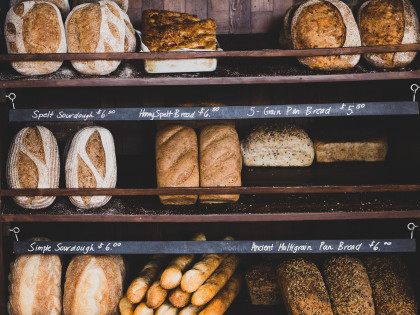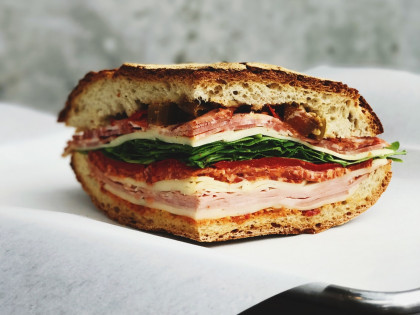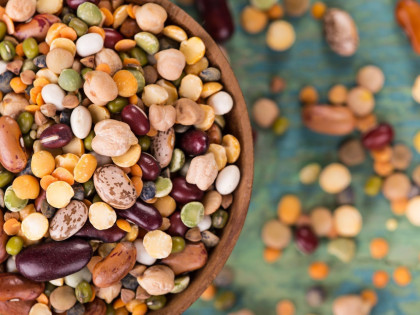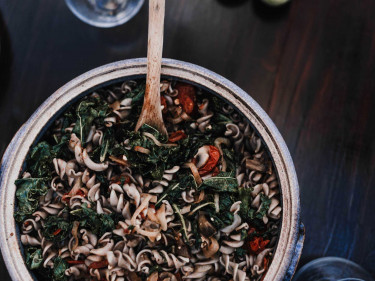Ever feel like you’re on a bit of a dieting rollercoaster? Do you start your Monday off with a new fad diet, and end it with plans to start again next week?
If so, then it might be time to try making some changes to the way you usually eat, drink and think about food.
Improve your diet quality score
While the juice cleanse you saw on Instagram might seem the answer to your dieting woes, we’re here to say…. yeah nah!
Cutting out food groups like dairy and carbs is not sustainable, nor is it healthy, as it can trigger a food binge. That’s why it’s all about focussing on a healthy, varied diet. This means eating more fruit and veggies, lean meats, poultry, fish, eggs, tofu, nuts, seeds, legumes, dried beans, wholegrains and dairy (mostly reduced fat).
To find out where you can improve your diet, take a look at the Healthy Eating Quiz.
Limit your portion sizes
Sometimes our eyes can be bigger than our stomachs. When you’re served a larger portion of food and drinks, the science shows you eat more kilojoules (kJs) without realising.
That might sound obvious, but it’s easy to get caught out when offered big portions – even when you’re determined to stop when you’re full. To reduce your portions, serve up a smaller amount of food, use smaller containers/dinnerware, and put away leftovers so you are less inclined to go for a second helping.
Your parents were right, eat your veggies
Did you just get a flashback to when you were a kid and your parents wouldn’t let you leave the dinner table without eating your veggies? Well…. they had a point.
Fruit and veg are high in fibre, vitamins and phytonutrients, but low in total kJs. So eating more of them can actually help you manage your weight (and boost your nutrient intake)!
Watch what you drink
Did you know a glass of juice, alcohol or can of soft drink contains around 600 kJ (150 cal)? While it might not seem like much, cutting out sugary drinks can make a big difference to your total daily kJ intake.
If you fancy a soft drink throughout the week, switch to low sugar/ diet versions, or preferably stick to water (and save money)!
Try to avoid food cues
Ever noticed yourself getting hungry while buying groceries, or watching tv? We are constantly bombarded with cues telling us to eat - think food ads, vending machines and chocolate bars when trying to pay for petrol or groceries.
Food cues are hard to resist and can trigger cravings, prompt eating, and predict weight gain. They can even make you feel hungry when you’re not!
If this is a trigger for you, limit the time you spend in highly cued food environments, like food courts. Stick to your shopping list when you do the groceries (and don’t go when hungry), and take your own snacks to places like the movies.
Resist temptation
Easier said than done right?
If avoiding food cues is something you struggle with, there are treatment options available that can help to manage overeating. The best place to start is to talk to your GP, an accredited practising dietitian or to a self help group (such as Overeaters Anonymous) that can help to start the conversation.
Through conscious practice, you can also draw on your brain’s own self-management skills to resist temptation. To train your brain to resist temptation on autopilot, try to remember RROAR (remind, resist, organised alternative, remember and/or reward).
Remind yourself that you are in control, not the food cue!
Resist the tempting food
Organise an Alternative behaviour against food cues - surf the urge and distract yourself e.g. move to a different room.
Remember the big picture! Do you want to feel better, reduce medications, lower your blood pressure, manage weight?
As a bonus ‘R’… Reward yourself if you complete one of your organised alternatives. For example put $1 in a jar each time, and when it builds up reward yourself with something you really want!
The bottom line
Planning ahead is one of the best ways to avoid overeating and beating food cue temptations. Consider what your triggers are and try strategies to overcome them. It can be as simple as prepping your meals for the next day, making a plan to avoid food cues, taking a shopping list with you to do the groceries, or using smaller containers/dinnerware.
Remember you are the boss of you, not the food cue!
Resources: https://theconversation.com/he...













